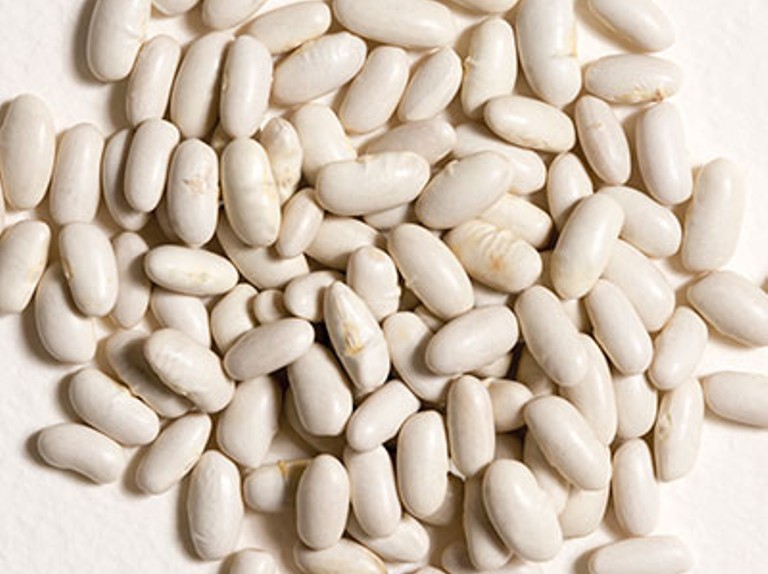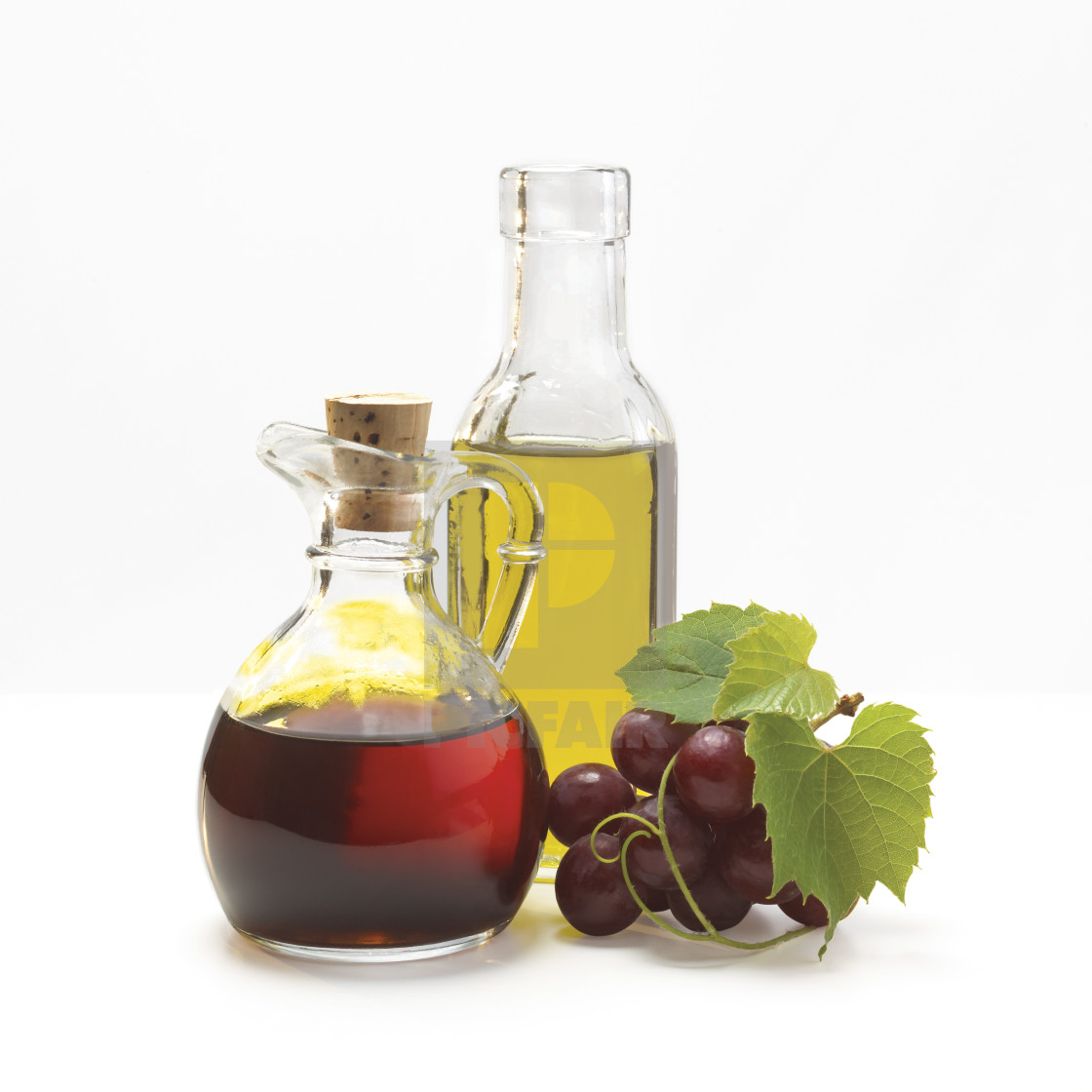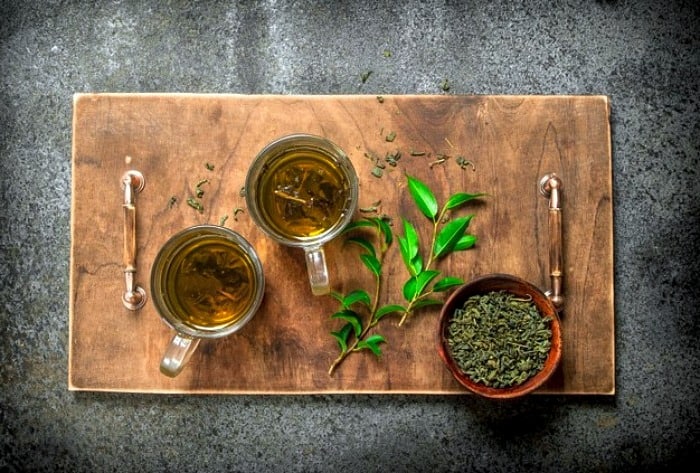What is Curry powder?
Curry powder is a combination of different spices and ingredients that are useful in other foods. Components are also very different depending on personal taste. Some of the most common ingredients in this spice are ginger, cinnamon, coriander, fenugreek, and turmeric. In addition, cardamom seeds, red peppers, and mustard are often present in the work mix. Many of these compounds have potential health benefits.
Nutritional value of Curry powder:
- Water: 8.8 g
- Energy: 325 kcal
- Protein: 14.29 g
- Total fat: 14.01 grams
- Carbohydrates in terms of grams Difference: 55.83 grams
- Fiber, total diet: 53.2 grams
- Sugar, total: 2.76 grams
- Calcium: 525 mg
- Iron: 19.1 mg
- Magnesium: 255 mg
- Phosphorus: 367 mg
- Potassium: 1170 mg
- Sodium: 52 mg
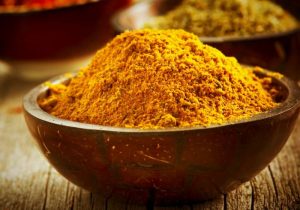
Benefits of Curry powder:
Prevention of cognitive diseases
Curcumin (a substance found in turmeric) in spices reduces free radicals in the nervous system. Therefore, this spice creates a strong immune system and removes toxins from the body.
Prevents Alzheimer’s disease
Turmeric is probably the most valuable element in this space, and one of the organic components of turmeric is called curcumin. Researchers use curcumin to reduce the deposition of free radicals in the nerve pathways of the brain. Related. It stimulates the immune system to eliminate the amino acids that make up these deposits, reducing cognition and the risk of Alzheimer’s disease. Studies are underway to establish a strong link between powder consumption and Alzheimer’s rates in India, significantly lower than Alzheimer’s disease in many countries.
Heart health
Basil, often found in Curry powder, is a very effective killer in preventing heart disease. The fiber in most work components also helps manage cholesterol.
Relieve pain and inflammation
One of the most important ingredients in Curry powder is turmeric. Turmeric is very effective in relieving joint pain and treating inflammation.
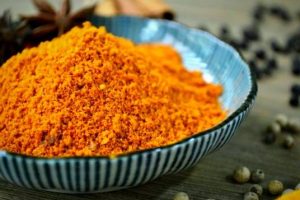
Bone health
Calcium, phosphorus, and magnesium are useful in maintaining healthy bone muscles and slowing down the breakdown process. One tablespoon of this spice may contain 30 mg of calcium.
Liver support
Turmeric, an integral part of this spice, contains the antioxidant compound curcumin, detoxifying the liver. The liver is one of the body’s largest filtration systems, processing all the nutrients and nutrients it contains.
Antibacterial
Coriander is an additive and seasoning plant usually added to traditional spice compounds and has antibacterial and antifungal properties. It has even been shown to prevent diseases such as E. coli and many intestinal infections.
Digestion
In addition to helping your body absorb enough nutrients, Curry powder also prevent intestinal health. Curry powder is rich in dietary fiber and helps to better transport substances in the intestines.
Increases metabolism
The significant amount of protein in this spice helps transfer nutrients from one part of the body. Therefore, it helps with digestion and overall digestion.
Anti-aging
Prevention of oxidative stress and damage is possible with a large number of antioxidants in this spice.
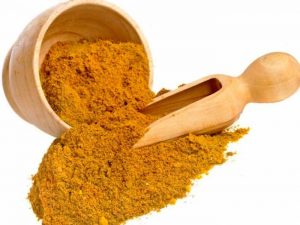
Cancer prevention
The antioxidants in the composition of herbal spices have made it one of the main claimants of cancer prevention. Curcumin, among its components, targets various tumors and cancerous growths in the body.
Use to treat colds
If you do not want to catch a cold in winter, it is better to use Curry powder because a special plant called fenugreek, which is used to prepare this spice, can cure colds, flu, and even infections.
Useful for weight loss
If you want to lose weight, add Curry powder to your daily diet. Red pepper raises body temperature, burns calories, and helps you eat less at the next meal. The cause of this strong and obvious effect is the active ingredient of pepper called “capsaicin.”
Is Curry powder good or bad for pregnant women?
Some herbs and foods can increase the risk of miscarriage in pregnant women, which should be avoided. This spice should be used with caution during pregnancy because it contains several types of sauces. Pregnant women should not eat any spicy foods during this period, but consuming these foods in small amounts is not a problem.
Is Curry powder good or bad for children?
From 6 months, spices can be added to baby food. Suitable spices for children are turmeric and cinnamon. Spices such as black or red pepper, thyme, or a curry should be added in small amounts to baby food after 15 months as it may cause allergies.
Ingredients for preparing Curry powder:
- Turmeric; A tablespoon
- Black pepper; Half a teaspoon
- Cumin; 1 teaspoon
- Dried coriander powder; 1 teaspoon of coriander seeds 5 tbsp
- Ginger; Half a teaspoon
- Cinnamon stick; 1 piece of cinnamon powder two teaspoons
- Clove; 2 herbs or one teaspoon clove powder
- Cardamom seeds; 3 or half a teaspoon of cardamom powder
- Red Hot Chili Peppers; 1 teaspoon
- Garlic powder; 1 teaspoon
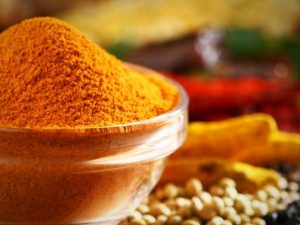
To make Curry powder, powder all the ingredients, mix them, and fry them very lightly. Then pour the spices into a glass container and harden and store in a dry place.
Caution:
The powder is a tasty and nutritious aspect of a person’s diet, but it also has potential side effects. Curry powder is an anticoagulant, so if you are already taking blood thinners, you should consult your doctor to reduce the risk of excessive bleeding. Research has also shown that Curry powder stimulates the gallbladder or people with gallbladder inflammation. Herbal medicines stimulate gallbladder contractions, good for healthy gallbladders but very painful for people with gallstones or bile duct obstruction.


